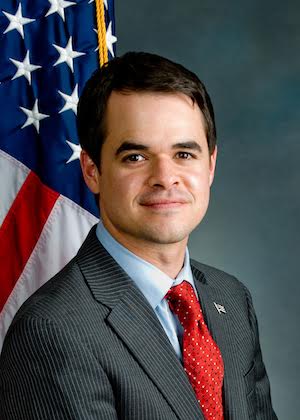 Across New York State, the hardworking people who take care of our most vulnerable individuals are not making a living wage. Direct Support Professionals (DSPs) make on average $11.91 an hour in New York State, according to PayScale. Despite their critical work, helping New Yorkers living with developmental disabilities and mental health challenges, the Governor’s recent state budget provides no extra funding to raise their salaries. This has to change or qualified DSPs will leave the field and care for vulnerable individuals will decline.
Across New York State, the hardworking people who take care of our most vulnerable individuals are not making a living wage. Direct Support Professionals (DSPs) make on average $11.91 an hour in New York State, according to PayScale. Despite their critical work, helping New Yorkers living with developmental disabilities and mental health challenges, the Governor’s recent state budget provides no extra funding to raise their salaries. This has to change or qualified DSPs will leave the field and care for vulnerable individuals will decline.
A living wage is a wage that is high enough to maintain a normal standard of living, but this is not the case for DSPs. A 2017 report by the President’s Committee for People with Intellectual Disabilities (PCPID) calls the state of the DSP workforce a “crisis.” The report found the average DSP wage is $10.72 and that most workers have two or three jobs to make ends meet. The poverty level in New York State stands at $12,060 a year for an individual and $24,600 for a family of four. A DSP who makes $10.72 an hour would make about $22,298 if they worked 40 hours a week. While this may be above the poverty line, it is not enough to live in Rockland or Westchester counties, let alone New York City. The average household income in Rockland County is $107,894, according to Point2Homes.com, which is astronomically higher than what a DSP is earning. In 2017, according to the state Department of Taxation and Finance, the median cost of a home in Rockland County was $450,000. A DSP could never afford a home in Rockland or save any money for their future. If you factor in taxes, utility costs, groceries, and gas, a DSP cannot make ends meet.
If we do not pay direct support workers fairly, they will leave their jobs and the people they help will pay the cost. The about 100,000 DSPs help about 130,000 New Yorkers living with developmental disabilities and mental health challenges. They often work for nonprofits and do physically challenging work, which requires their attention at all times. They help individuals with their daily tasks and teach them the skills necessary to live independently. Often the people being helped develop a bond and relationship with the DSP and their success can be based on this close-knit relationship. However, with inadequate salaries, turnover is high, and the people in need are suffering. PayScale notes that DSPs do not generally have more than 20 years’ experience, which means they do not turn this job into a career. Further, a 2017 PCPID report found the average turnover rate for DSPs stands at 45 percent. A high turnover rate means individuals are dealing with a revolving door of care providers and new workers interrupt the continuity of care. In addition, high turnover can cause unreasonably long wait lists for services that individuals need, and this can make people consider more expensive institutional care for their loved ones.
It is imperative that Governor Cuomo increase funding in the budget to ensure nonprofits can increase pay for DSPs. The Governor had previously promised to do more and the budget for 2020 only ensures nonprofits can pay DSPs the new minimum wage, which varies across the state. In Rockland, it will stand at $11.80 an hour. This is clearly not enough. If we want people to enter the field, build a career and ensure a high level of care for our most vulnerable populations, then we must act now. As budget negotiations continue, I will be advocating for a real living wage for our hard working Direct Support Professionals.

You must be logged in to post a comment Login